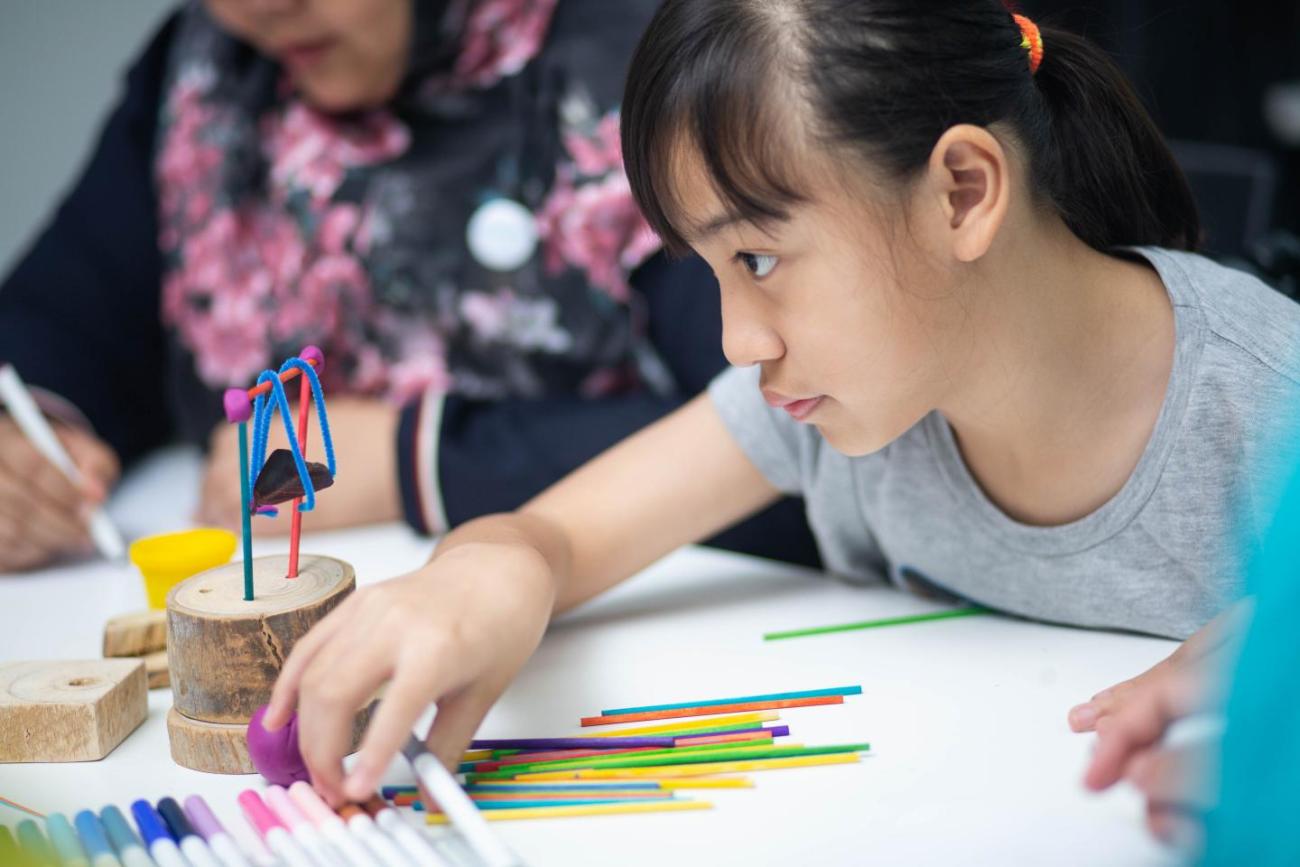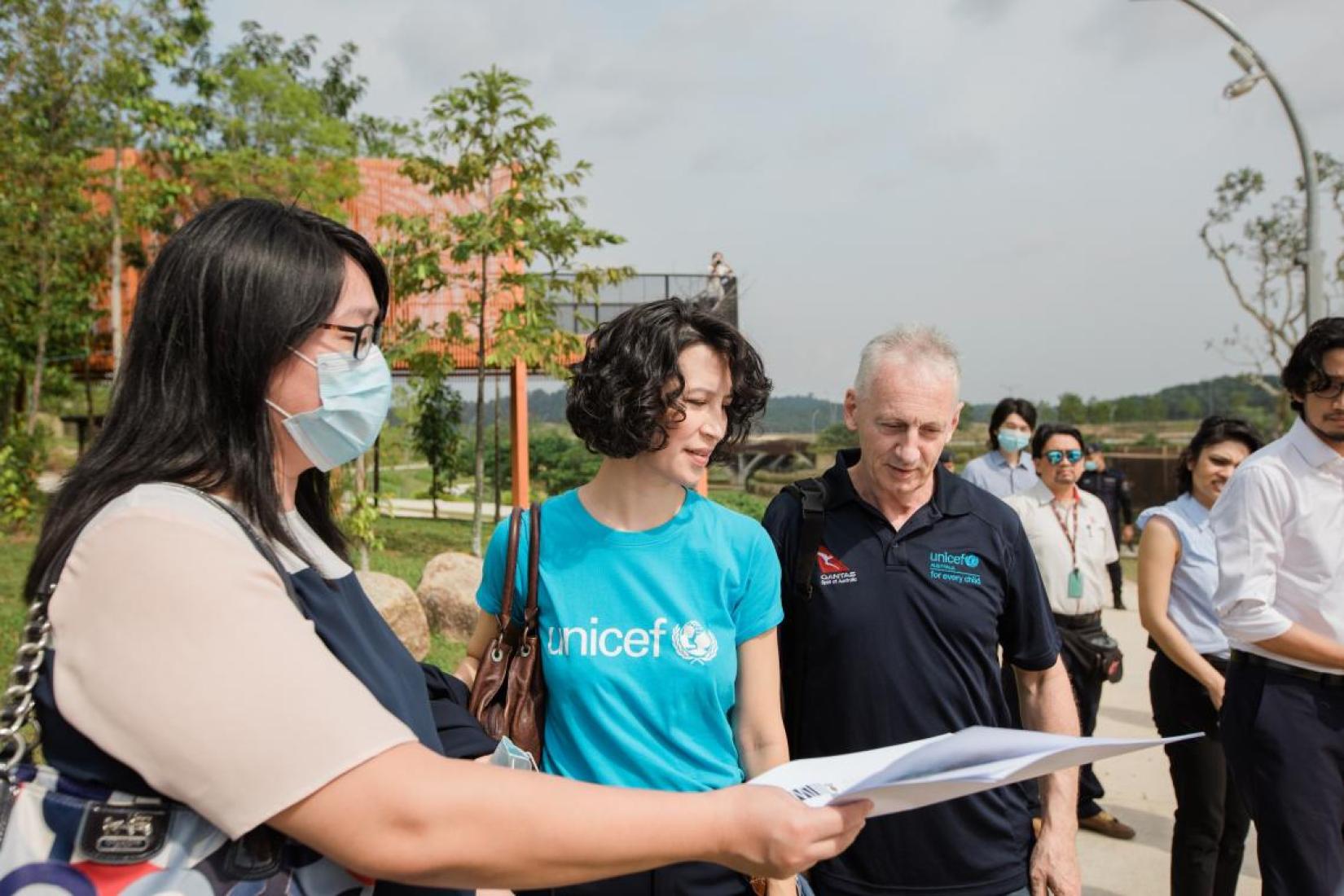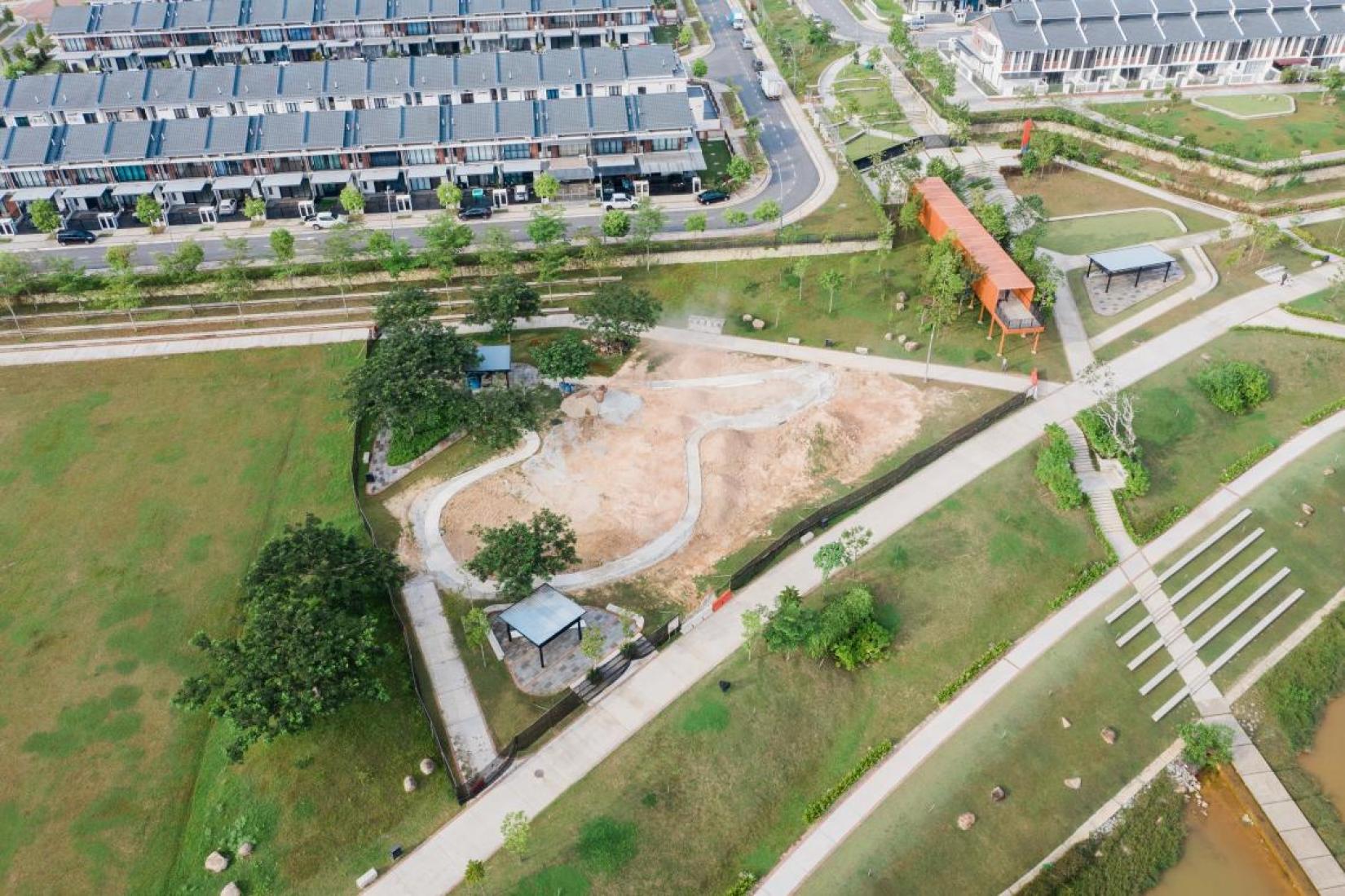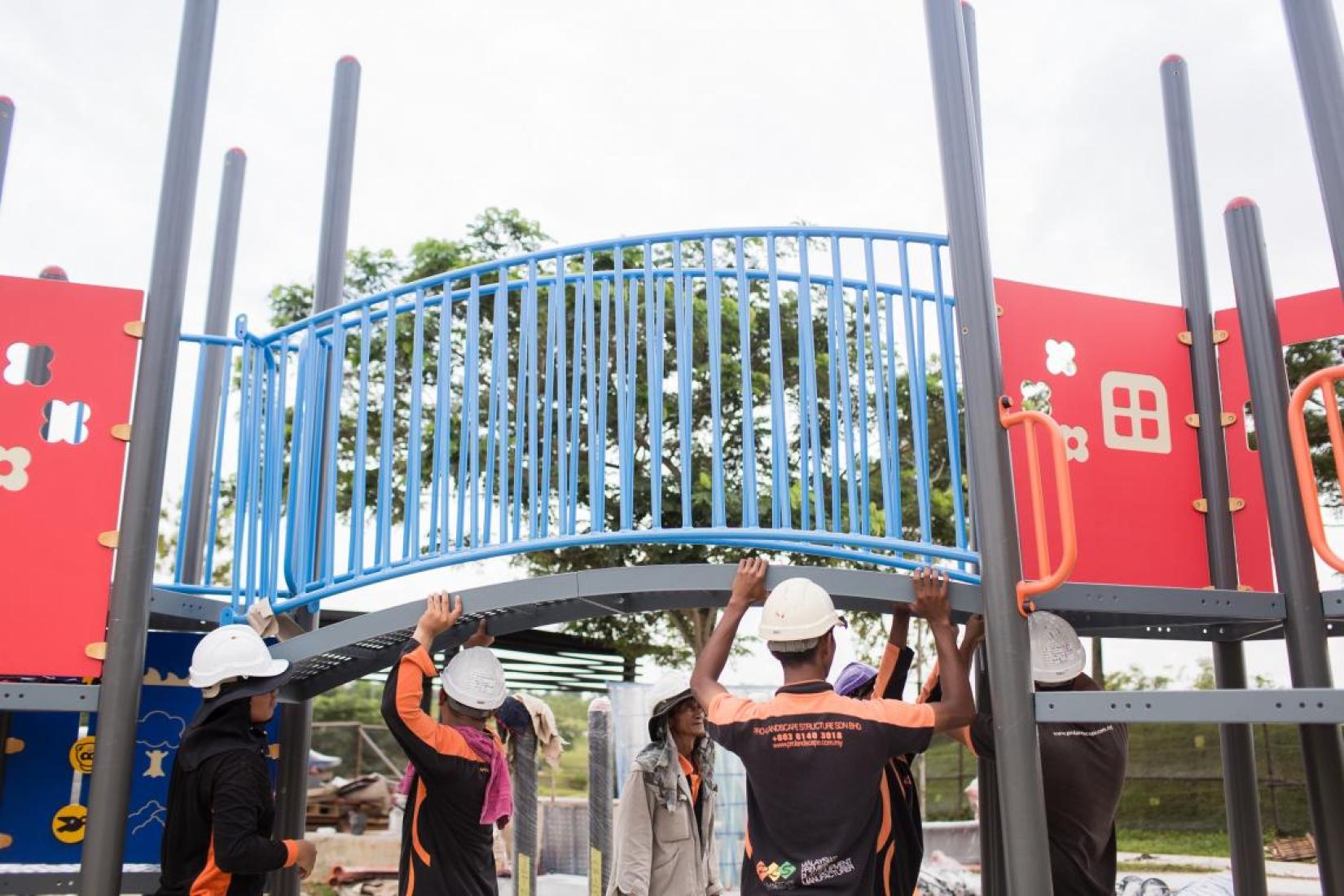Inclusion at Play

Inclusive playground becomes model for inclusion through human centered universal design
by Zoe Gan, Child Protection Specialist (Children with Disabilities)
Right to play, for every child
When we think about children’s rights and developing to their full potential, our thoughts immediately go to education, healthcare, nutrition. Growing up in a society that values academic achievement, we can be forgiven for forgetting that play is a major part of our growth and development.
Play is one of the best gifts we can give our children – the freedom to explore, discover, move, to be silly. Play is where children can express themselves spontaneously. While education, healthcare and nutrition are critical, we must not underestimate the importance that play has on a child’s physical, mental, emotional and social development.
For this reason, it is important that we do not leave children with disabilities behind in play. Inclusion needs to happen in every facet of life – from education, healthcare, nutrition and especially play.
Rising to the occasion
In 2017, UNICEF released a report on “Childhood Disability in Malaysia: a study on knowledge, attitudes and practice”. The key findings of the study highlighted that knowledge was low, attitudes were predominantly negative, and practices excluded children with disabilities. When UNICEF shared these findings with Sime Darby Property (SDP), the forward-thinking property developer rose to the occasion and pledged to be “Inclusion Champions” for children with disabilities.
Sime Darby Property were in the midst of developing the City of Elmina township with the concept of wellness, work-life balance, sustainability and inclusion. Putting their money where their mouths were, SDP took on the challenge to embed sustainability and inclusion in their development.
This 3rd of December 2020, on the International Day of the Persons with Disabilities (IDPD), SDP will officially unveil their first universally designed Inclusive Playground located in the middle of City of Elmina. The playground had been designed in collaboration with children with and without disabilities, their parents, grandparents, and a number of leading organizations of people with disabilities. Never was the ethos of “nothing about us, without us” more prominent than during this design process.

Building better design for everyone
The year 2020, and the COVID-19 crisis has given us the opportunity to dream of a better world. This reimagination should extend to how we treat children, and the most marginalized of all – children with disabilities. No one should be left behind.
The theme for IDPD this year is “Build Back Better: toward a disability-inclusive, accessible and sustainable post COVID-19 World”. The inclusive playground, erected in the middle of the City of Elmina is a model of what we can achieve through urban planning and design, to ensure that every one of us is included.
The playground is the first that we know of in Malaysia that incorporates human centered universal design; these inclusive approaches ensure access to as many people as possible. They do not discriminate with regards to age, gender, or disability. They enable different people, with their diverse needs and perspectives, to engage with their environment in a meaningful and purposeful manner.

Playing together
Children and adults with disabilities are the largest minority group both globally and in Malaysia. The 2019 National Health and Morbidity Study reported that 4.7% of children between 2 and 17 years old have a disability in Malaysia.
From the UNICEF 2017 study, we know that there is limited knowledge among respondents in Malaysia about the actual causes of disability; for instance, 13% of people think children with disabilities needed less food in order to survive than those without disabilities.
It may be just ignorance, but this type of ignorance and negativity have real implications on the lives of children with disabilities. We know that children and adolescents with disabilities feel sad, lonely, embarrassed and angry when they are excluded.
This inclusive playground is not just a playground for children to get their daily exercise – it is much more than that. It can be a microcosm of our society. Through playful interaction with friends, their parents and others, children learn to solve problems, to make friends and collaborate with each other as a group. They learn how to share with others, to value and respect differences, and build social skills that will help them navigate our complex world.
Imagine a place where children and caregivers can learn, develop and interact with a diverse group of people. Barriers are broken, bridges are built and children with and without disabilities are seen, valued and equally included.
Ultimately, we grow as a cohesive community guided by the principles of inclusion.

Model for others
Sime Darby Property has taken the bold step to be the first developer to build an inclusive playground open to all. They have created a unique outdoor space that is user-oriented with something for everyone. It is not without its benefits to them. Property value will rise and retail businesses will thrive in areas where there is a lively and playful social environment.
Embracing diversity and inclusion is mutually beneficial for both people with disabilities and businesses themselves. People with disabilities get greater access to products and services that can benefit them. The challenges that exist for consumers with disabilities become opportunities for businesses to meet their needs.
Accommodating people with disabilities is far from being an economic burden on the local authority and property developers. The provision of quality outdoor “child friendly” spaces is an investment that will only yield high returns through improved brand recognition and customer loyalty.
As part of this initiative in collaboration with SDP, a Best Business Practices Circular and Guidance Toolkit has been developed as documentation of the journey. We hope that it will be an inspiration to other local authorities and a guide for future property developers within Malaysia.
For every child
Malaysia has made a clear commitment to the Sustainable Development Goals. A key principle imbued in these targets is to ensure that no one is left behind. Inclusion is a right to be enjoyed by all children. It is not a privilege reserved for just a few.
As the year comes to an end, and we look forward to a post-COVID-19 future, I hope this playground sparks in your mind the image of a better world. One that we build, for ourselves, children, and future generations to come.



